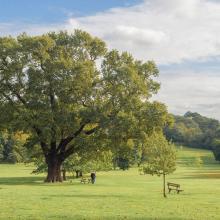Investment unlocked: transforming grid connections, and…
3 Dec 2025 - 4 minute read
Sign in to add this page to your favourites
Sign in or registerSign in or register to manage your favourites
Sign in or register
Join us in on 15 June in Glasgow, 20 June in London or virtually on 22 June and share your feedback with us before 28 July.
There is a clear and urgent need to reform Great Britain’s electricity transmission connection process. Renewable project developers are waiting too long to connect to the network, and this is hindering our progress to deliver net zero.
More than 280GW of generation projects are currently seeking connections to the transmission network and an increasing number of those projects have dates into the mid to late 2030s.
We’ve seen huge increases in the numbers and capacities of projects seeking to connect, yet our data shows up to 70% of those projects may never be built. Those projects are holding capacity that is significantly delaying the connection of other projects.
We’re taking a range of actions to address these problems now, via our five-point plan, but also, after extensive engagement with industry, we’ve put forward in this consultation a new, agile, future-proofed connections process.
The initial recommendations we include in this consultation will deliver significant overall cost savings for consumers through coordinated network design and significantly reduced times to connect through more efficient management of contracts and capacity.
Our recommended new connections process has also been future proofed to factor in the outcome of a number of other reform programmes across the energy sector.
We’re confident that the initial recommendations in this consultation can help deliver the improved outcomes we all want and we welcome the support from Government and Ofgem, including Ofgem’s recent open letter and the planned joint action plan in the summer.
Although our initial recommendations would require significant changes to regulations and industry codes, there is an opportunity now to work together creatively and ambitiously to expedite these reforms.
We now need constructive engagement with the industry to develop the initial recommendations in this consultation.
Respond to the consultation document